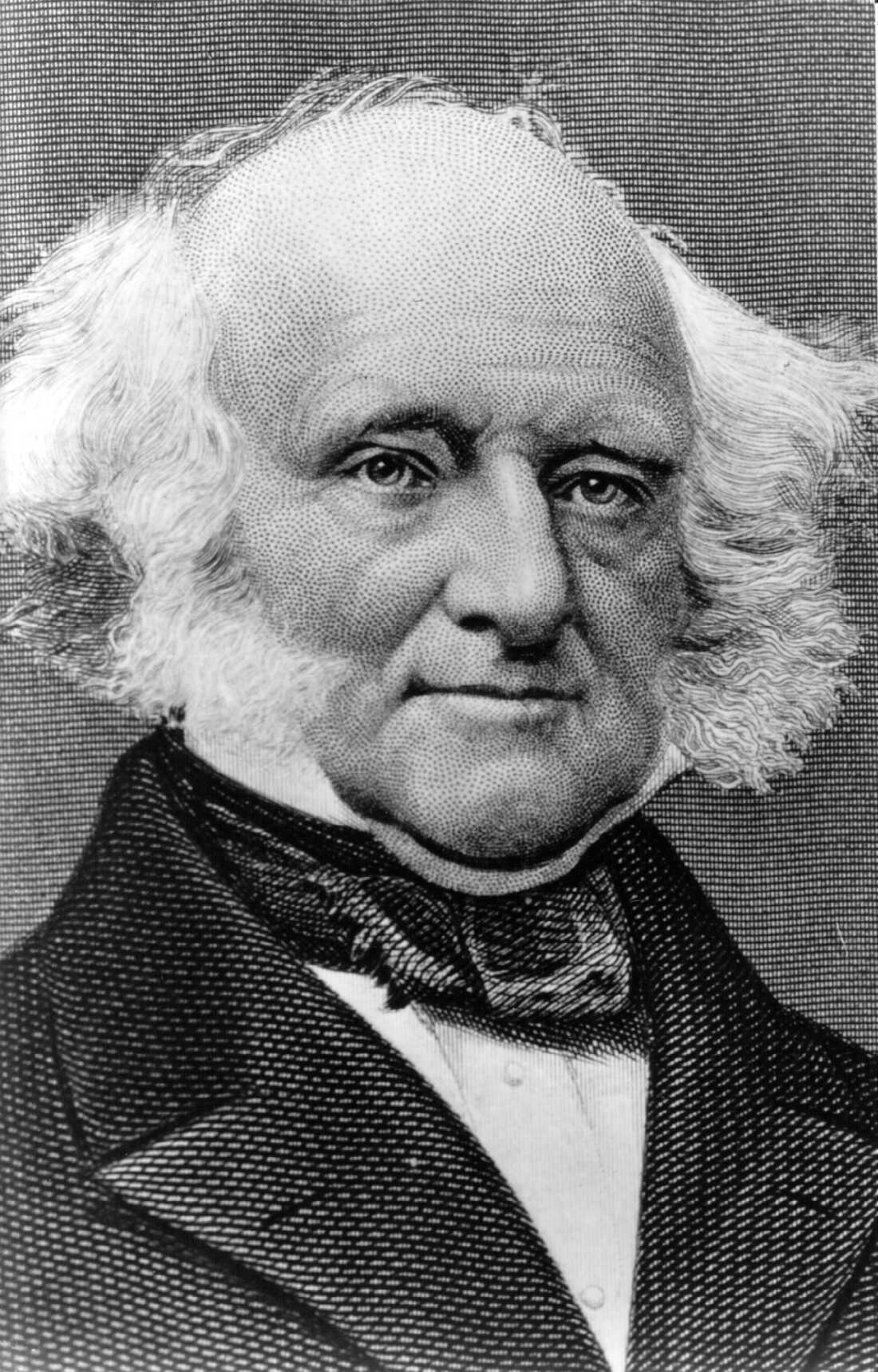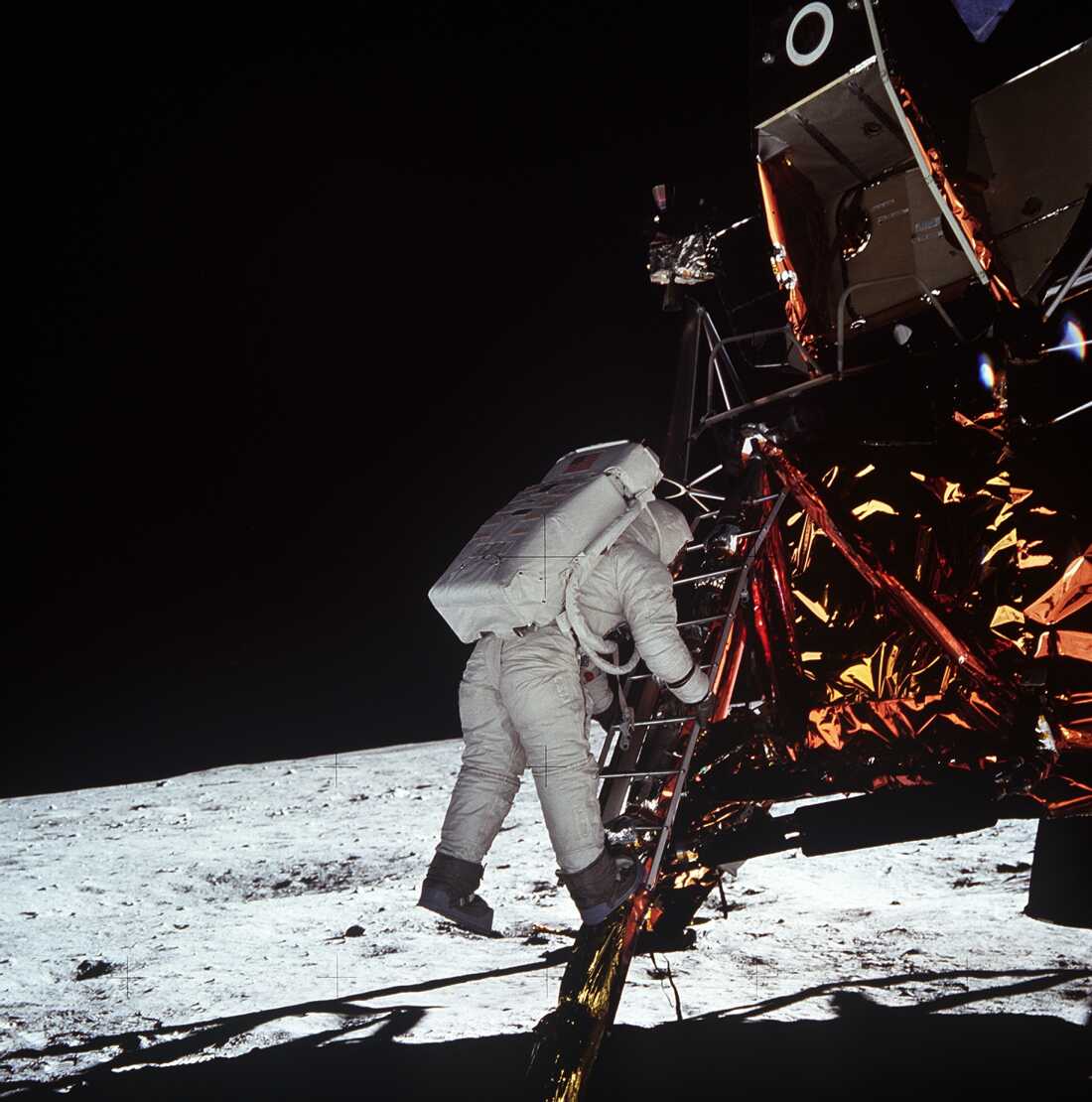
Martin Van Buren served as U.S. president from 1837 to 1841. Some would say he was not much more than an OK president. National Archives/Getty Images/Hulton Archive hide caption
toggle caption
National Archives/Getty Images/Hulton Archive
From Buenos Aires to Bangkok, Montreal to Moscow, the languages may differ, but nearly every taxi driver or street vendor in the world understands one word made famous during a raucous U.S. presidential campaign nearly 200 years ago.

Author Interviews
OK: How Two Letters Made ‘America’s Greatest Word’
It’s “OK”: a tiny word that punches well above its weight. It means both “yes” and “I understand.” It’s a noun: I got the OK for this story from my editor; a verb: She OK’d it and an adjective: The story turned out OK.
It’s even a simple interjection: OK! Enough with the grammar lesson!
NPR’s London-based correspondent Lauren Frayer has reported from dozens of countries in Europe, the Middle East and Asia, and she says, “no matter my bad language skills, ‘OK’ is sort of universally understood.”
OK is a truly American invention. It started out as a joke, but has become one of the most widely used words on the planet.
This week’s installment of Word of the Week traces its evolution.
Where did OK come from?
The origin of ‘OK’ remained a mystery for much of its existence — and even today, some still dispute the most accepted explanation. Over the years, theories have abounded: Some traced it to French or Scottish roots. In the 1960s, folk singer Pete Seeger popularized another idea, singing that “Choctaw gave us the word OK” — a widely held belief at the time, but one that ultimately proved wrong.
“Early efforts to establish the origin of OK were imaginative at best, without documentation, and often just foolish,” according to a 2011 article in the Dictionaries Journal of the Dictionary Society of North America.

Word of the week
Brother to Bruh: How Gen Alpha slang has its origins in the 16th century
Most scholars now fall in line behind the conclusions of Allen Walker Read, a Columbia University English professor who set out in the 1960s to settle the mystery of OK’s origin. He followed its trail back to a playful misspelling of “all correct” as “oll korrect.” The term first appeared in the Boston Morning Post on March 23, 1839, although “it had probably been used colloquially before that,” according to Doug Harper, who created the Online Etymology Dictionary. It germinates from a linguistic fad of the time — a playful trend not unlike Cockney rhyming slang in which people “would abbreviate common phrases with deliberate, jocular misspellings,” he says.
In July 1839, the word appears in a paragraph written by the editor of The Baltimore Sun. He thanks “some anonymous gentleman for a gift of bottles of wine … and he pronounces the wine ‘O.K.,'” Harper says.
But it was the following year, 1840, and the reelection campaign of President Martin Van Buren that really brought the word into its own. Mark Cheathem, project director of the papers of Martin Van Buren and professor of history at Cumberland University, notes that “conveniently … O.K. lined up with a nickname that was attached to Van Buren — ‘Old Kinderhook,'” a reference to the president’s birthplace in Kinderhook, N.Y. Political nicknames were in vogue at the time, Cheathem adds. Van Buren’s predecessor, Andrew Jackson, was known as “Old Hickory,” and his 1840 rival, William Henry Harrison, was dubbed “Old Tippecanoe.”
Van Buren’s supporters formed “O.K. Clubs” aimed at energizing the candidate’s political base, Cheathem says. Some contemporaneous accounts suggest the clubs also added “muscle” to the campaign. Van Buren even began signing documents with “O.K.” to reinforce the association.
Harper notes that OK was wielded by both parties in the 1840 election, with some newspapers claiming at the time that it originated from a spelling blunder by Jackson — meant to mock the former president, a fellow Democrat like Van Buren. The story went that Jackson’s postmaster general, Amos Kendall, was accused of mishandling accounts. When Jackson personally verified them, he instructed that they be bundled and marked “OK” — because, as he said, “Amos is all correct.”
How has OK changed over the years?
Needless to say, OK caught on. It was easy to say and could be used in a variety of situations to denote simple agreement, confirmation, understanding or approval, making it useful in a technological age that began with Morse code and telegraphs.
“It’s a perfect headline word because it’s so short,” Harper says. “In print it’s difficult to figure out how [to] spell it out,” he says. On the other hand, “it was also an abbreviation you could write with just two letters … and it covers a lot of ground, meaning-wise.”
Its usage in the 20th century grew thanks to American soldiers stationed abroad, says Harper. “If you’re looking for the global spread, I would really start with the two world wars and right after them,” he says.
Around 1945, Harper says he sees examples of “people either celebrating or complaining that the French are starting to use OK, which would be the ultimate [barrier], I suppose, for such American slang.”

Astronaut Edwin E. Aldrin, Jr., lunar module pilot, descends the steps of the lunar module ladder on July 20, 1969, as he prepares to walk on the moon. NASA/Getty Images/Hulton Archive hide caption
toggle caption
NASA/Getty Images/Hulton Archive
During the 1960s, NASA astronauts popularized the phrase “A-OK” to signal that all systems were go. And 56 years ago this week, “OK” was among the first words spoken from Earth to the Moon. As the television signal switched on and Neil Armstrong prepared for his famous “one small step,” Houston announced: “OK, Neil, we can see you coming down the ladder now.”
Even so, it hasn’t been all smooth sailing for OK. The word started out as an abbreviation, or more precisely, an initialism — where initial letters are pronounced separately (as opposed to an acronym, where the initial letters are pronounced as a word). But that’s led to confusion about how to render it. Is it O.K., OK, or okay?
Harper says he prefers “okay” because “it doesn’t break up the page with a lot of capitals,” but NPR largely adheres to Associated Press style, which recommends “OK” with no periods.
Why does OK matter today?
Today, OK is “very probably the most widely recognized word in the world,” according to Merriam-Webster.com.
Although traditionally it’s a word that’s been spoken more than written, it shows up on lists of the most used SMS phrases, along with its even-shorter — and more controversial — counterpart, simply “K.” Of course, there was the dismissive dis of “OK, Boomer” a few years ago.

Business
#OkBoomer Vs. #OkMillennial: Workplace Nightmare, Or Just A Meme?
If you wanted to get rid of the word today, it would be virtually impossible, Harper says. Its imprecision is a plus. “In street talk and casual interactions, vagueness has more value than precision,” he says. “We keep reinventing those [kinds] of words.”












